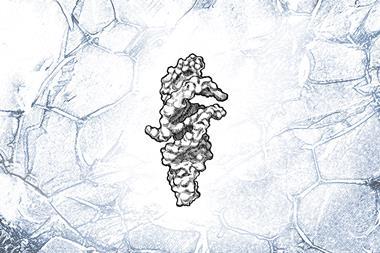A catalyst that is soluble at high temperatures and solid at room temperature has been developed, incorporating both efficiency and recyclability.
Researchers in Japan have developed a catalyst that is soluble at high temperatures and solid at room temperature. The breakthrough offers a solution to the age-old dilemma of whether to select a catalyst based on efficiency or on recyclability.
Chemists often have to choose between homogeneous (i.e. soluble) catalysts, which tend to speed up reactions more efficiently, or heterogeneous (solid state) catalysts, which are more easily separated from the products once the reaction has happened.
Shiro Ikegami’s group at Teikyo University based a new approach on their earlier work on the self-assembling, temperature-responsive polymer poly(N-isopropylacrylamide) (PNIPAAm), which can switch reversibly between a water-soluble and an insoluble state. The researchers modified this polymer by introducing a positively charged building block involving a quaternary ammonium unit after every 12th monomer. The counterion, phosphotungstate, constituted the catalyst for the desired reaction, the oxidation of alcohols with hydrogen peroxide.
The researchers observed that at 90?C this catalyst formed a stable emulsion in water with high catalytic activity in the oxidation of 1-phenyl-1-propanol and other alcohols. Oxidation of primary and secondary alcohols afforded carboxylic acids and ketones, respectively, with yields of over 80 per cent. The polymer precipitated as it cooled and could be easily separated.
’This switchable catalyst is very elegant indeed,’ said Hans Niemantsverdriet from the Technical University of Eindhoven, The Netherlands.
Michael Gross
References
H HamamotoAngew. Chem. Int. Ed44, 2262






No comments yet